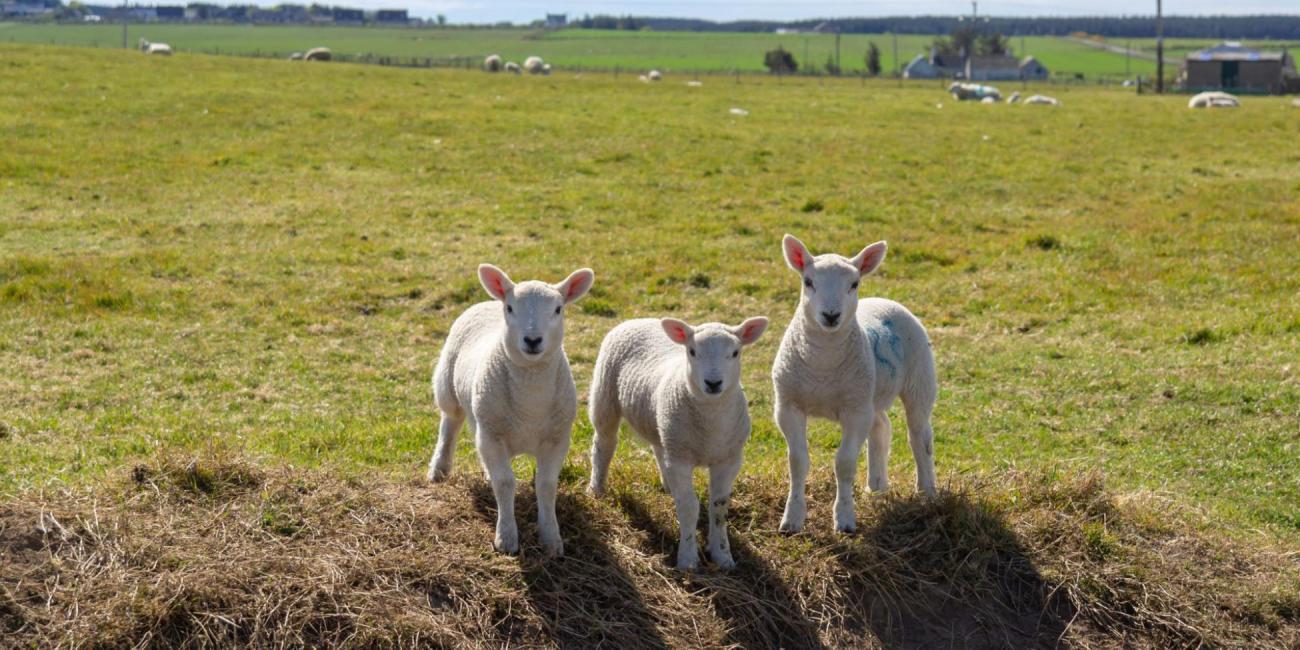I’ve been reflecting on presentations from Drs Pearse McCusker and Emma Miller at the Rural Social Work Forum at a webinar we ran called Wellbeing and the rural practitioner. Pearse shared findings from a three-year University of Edinburgh study on self-care in social work education, and Emma spoke about the Setting the Bar for Social Work in Scotland report on what makes people want to stay in or leave the profession. It highlighted key considerations for social work generally, as well as what this means for different, and overlooked, groups.
Why this matters?
Self-care isn’t a woolly add-on but essential and vital to self-preservation (isn’t it?); Audre Lorde – the black American scholar, poet, essayist, feminist and equal rights activist – takes this further in also describing it as an act of political warfare.
But if it’s so vital, why has such scant attention been paid to it in social work practice or education, asks Pearse McCusker, senior social work lecturer at the University of Edinburgh? Especially as this is a job that deals with difficult emotions as well as high workloads - with this made very clear in the Setting the Bar for Social Work in Scotland report co-authored by Emma Miller. The report, based on a whopping 1,500 survey+ responses in Spring 2022, provides a robust reflection of social work in Scotland today. The findings report unmanageable workloads (59%), lack of work life balance (51%), high administrative workload (49%) and poor physical and mental health (45%). And these factors are all interwoven - ‘so fear of making mistakes (which 25% report) will logically rise as your caseloads do’ says Emma. These all play a significant part in the recruitment and retention challenges facing the profession right now, with unfilled vacancies, with this also meaning fewer experienced staff to take on senior roles and over reliance on agency staff.
Social workers often focus more on the needs of others than their own. This isn’t so surprising when you consider that wanting to make a difference is the leading reason for joining the profession. But it’s also cultural. Emma’s research indicates that we are conditioning those entering practice to expect stress; to say goodbye to healthy boundaries or a work-life balance. ‘This is not helpful’ she says. It can lead to burnout, ill health and people quitting. It needs to be unlearned, and addressed.
How we think and talk about wellbeing and self-care matters
But maybe things are moving in the right direction? Certainly, we’re talking more about wellbeing and self-care? It’s evident, however, that we need to be clear on exactly what we mean by these terms, and want to take from the competing narratives at play.
The literature, Pearse highlights, sees wellbeing and self-care as ‘holistic and multi-dimensional,’ spanning mental, emotional, psychological, physical, spiritual, or social and relational dimensions amongst other things. This can help us get at what it might entail. So attending to our physical needs covers things like eating well or getting enough sleep and exercise, while our emotional, social or relational needs might involve meeting up with friends, sharing challenges with colleagues or feeling that we belong to an organisation and that it has our back and supports us. But our needs are also unique – so one person’s spiritual needs might be religious, while another’s might be getting out into nature.
How self-care is aligned to social work’s views on social justice, equality, diversity and inclusion is an interesting one, says Pearse. Certainly, I wonder, have we thought through how it might be different for people depending on their race or sexuality, if they are disabled, neurodivergent or younger or older? (I don’t think we have.) As a social worker you might experience discrimination from within your organisation or from those you support. That might be hate crime, stereotypes being applied, or it may be people expecting too much or too little of you or of being marginalised. It also begs the question, to what extent can we expect the social worker to adapt to the environment or the environment to adapt to them…?
Of key contention, of course, is whether self-care and wellbeing is an individual or collective responsibility? The term ‘self-care’ indicates the former to me, with individuals assumed to have agency and self-determinism. But while you might like the idea that you can do something about ‘it’ there’s the risk that it blames the individual for not ‘looking after themselves’ while letting organisations off the hook. Self-care shouldn’t be something social workers ‘do’ so they can cope with even more pressures. To echo Audre Lorde, there is a key difference between overextending yourself and stretching yourself. We need to be careful that we aren’t measuring our self-worth by our weariness or that we are still standing.
A structured response?
Emma’s presentation takes up the mantle of more collective responses to these issues, with a focus on what might be seen as a moral or ethical imperative for the profession to act. I’ve broken this down to showcase the multi-dimensional approach required.
The material
- Addressing manageable workloads; challenging unreasonable expectations; setting boundaries.
- Flexible working.
- Better admin/support (or reducing time on paperwork, with this especially high where social workers have to justify public expenditure on support packages).
Emotional support
- Better supervision and debriefings after significant/difficult events.
- De-stigmatising burnout – creating space where its ok to voice upset, express compassion fatigue or vicarious trauma.
Preparation - education and training
- Better preparation for the role - e.g. on what to expect, how to deal with emotions, practical help around case recording.
Peer/collective approaches
- Promoting membership of advocacy groups, self-care groups or professional bodies.
Recognition
- Better understanding and recognition of social work (and social workers) albeit, Emma explains, that there was some resistance to ‘pinning down’ definitions of social work, perhaps due to the unpredictable, relational, and responsive aspects of its work…? Maybe it’s the values, skills and knowledge base of social work that needs to be foregrounded, not activities or tasks, with some thinking this is what has got lost over the years?
To pick up that first point on caseloads - we’ve seen how in areas like Leeds, reducing caseloads has been successful in increasing retention and allowing for more proactive than reactive social work. Emma explains, however, that while ‘Setting the Bar’ began with a plan to identify indicative caseload limits for different social work specialisms, they moved away from this. It’s challenging to arrive at a set number, especially when we consider local variance in terms of practice, population needs, resourcing and other environmental issues. And, of course, there is a rural dimension to be considered in there…
Rural dimensions to self-care and wellbeing
Here are some of the rural considerations identified by those attending Pearse and Emma’s presentation that policymakers and those in urban settings might miss or forget…
There is a lack of services and supports in rural areas – This can make the rural practitioner feel significantly compromised – while recognising that in urban areas, service users may be on long waiting lists. Rural social workers also spoke about cuts to third sector and NHS services, creating additional gaps to scarce rural provision that social workers attempt to fill.
Small teams, high expectations – In some rural areas there may only be one or two social workers in post– this can place a very high expectation on individual workers.
Rural areas particularly struggle to fill posts – Recruitment to rural posts is a considerable issue, particularly as some of these posts may be unfilled for long periods of time. This places higher demands on existing team members. It can also mean that there is no time for good and meaningful supervision because people are under constant pressure, or that there are fewer opportunities for face-to-face meetings with colleagues.
Additional emotional labour – Rural social workers have the additional emotional work of managing dual and complex relationships in and outside working hours if they live and work in the same place. If things go wrong ‘they can get dark very quickly’ especially if a social worker and their family get targeted and become isolated. The impact of this on a social worker’s partner, children, or friends, is rarely considered in thinking about wellbeing and requires particular understanding and support.
Travel – We know that rural social workers spend more time travelling than most practitioners, taking them away from filling in forms or recording practice, all tasks that need to be done. Workers are also reliant on their own cars and covering the costs of their garage bills. There are safety issues to be considered too. Help may be further away than in an urban area if back up is required. Plus, people can get stranded due to geography or weather. Roads may be impassable or ferries cancelled. That said, travel can offer benefits: ‘I actually find the driving involved working in rural setting contributing to my wellbeing; it can be a time to reflect, to compose thoughts and have a natural break in the middle of the day, listening to the radio.’
I also wondered how social workers ‘parachuting’ into rural settings from urban ones might be perceived? But that’s a post for another day…
Where to next?
Questions were provoked about how we put the 'onus' on employers to provide time for ‘self-care’ and support wellbeing? How do we build this into employment contracts, terms and conditions? Is this something the National Social Work Agency can help with? Some wondered if social work could have its own version of ‘McCrone time’ – this provided teachers with dedicated time for planning, preparation and assessment, recognising this might require reduced class contact time. We were also reminded of professional disparity – with it noted that Police, Psychiatrists, Midwives, and Firemen are given pensions that allow them to retire at an earlier age due to the recognised stress of their jobs.
Discussions revealed that some local authorities are developing trauma informed supervision policies, including wellbeing plans and reflective practice space. Some wondered if we needed a national training reflective/clinical supervision framework? Others highlighted the need for training to help supervisors provide reflective supervision ‘because it’s a skill that is not often taught’.
There’s also a job to be done in preparing social work students for practice, with newly qualified social workers particularly vulnerable to burnout. And we shouldn’t forget students, who increasingly need to juggle coursework, part-time jobs and the other stuff of life! Significant numbers have chosen the profession because of their own experiences of the system, or adverse childhood experiences. And, as Pearse points out, ‘they might not know what self-care looks like, because no one has modelled it for them.’ The University of Edinburgh – informed by students as they transition across year groups and into practice - have developed lectures on self-care. They’ve also created sessions on mindfulness, vicarious trauma and compassion fatigue, understanding your ‘vulnerability or pinch points’ and how to manage challenging communication with people who become upset or angry.
And returning to the rural theme, it would be good to also see the creation of specialist modules to prepare students for rural practice, particularly the dual and complex relationships they will encounter. It’s these very relationships that are rewarding to the profession and that provide the heavy emotional labour that is central to a very demanding job.
To end…
Self-care has become synonymous with ‘go treat yourself’ in our media, or go buy something to make yourself feel marginally better. But it’s something that needs to be modelled, cultivated and, according to Audre Lorde, fought for through collective action. For her, and many in the social work profession, is this about showing up for one another? Individuals cannot mitigate the harm to their wellbeing or others in isolation - whether that’s our own working conditions, or it’s speaking up for those experiencing poverty, discrimination and injustice. This is where the wellbeing of the social work profession connects with discussions about its identity, and the moral distress that comes with working in ways not aligned with professional values and current calls to re-assert a strong social work voice.






